
Enhancing the agricultural productivity of smallholder rice farmers is the cornerstone for a stronger and more resilient rice sector. In order to improve productivity and environmental sustainability of rice production IRRI closely works with national partners on mechanization and improved postharvest management.
Mechanization
Labor shortage is affecting agricultural production in many Asian countries. In response to this challenge, IRRI works with its partners to develop and promote technologies and business models for machinery service provision for small farmers who cannot afford to own the equipment. We also support value chain support services that are a pre-condition for successfully introducing mechanized systems. Mechanized systems improve input-use efficiency, reduce greenhouse gas emission and environmental pollution, ensure health and safety of farmers, and bring savings in input and labor costs.
Laser-assisted land leveling
Properly leveled fields are a pre-condition for good crop establishment, water management, weed control and a evenly maturing crop ensuring high yields and maximum quality. Laser assisted land leveling results in high accuracy with only +/- 1cm variation in height, which typically leads to 40-60% water savings, increase of yields by 10-15%, a reduction of agrochemical use and even slightly better grain quality. It therefore reduces the cost of rice production significantly, and due to better water management also can help reduce greenhouse gas emissions.
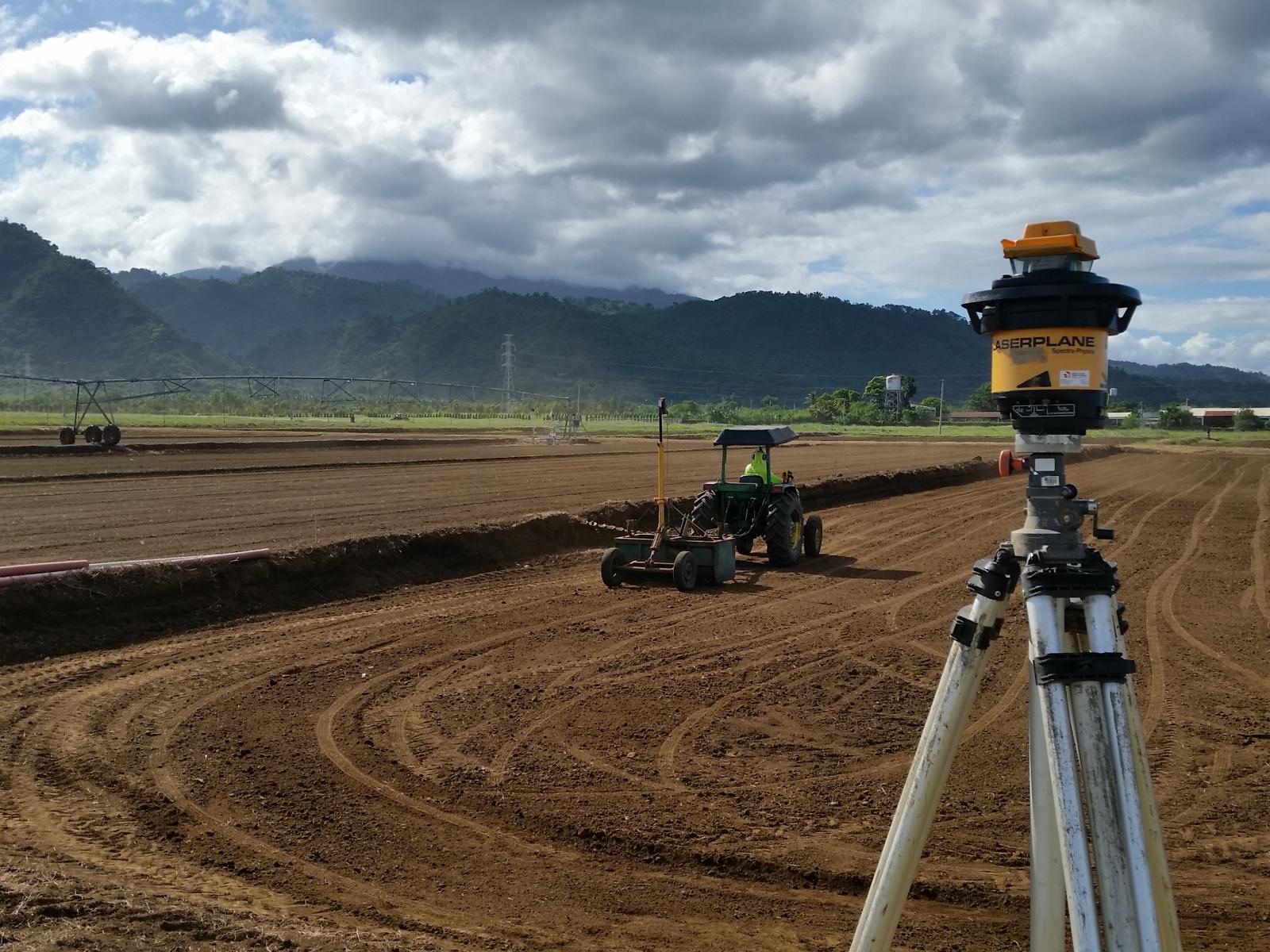
Crop establishment
Due to labor shortage farmers have shifted from the manual transplanting to broadcasting seeds, which requires high seed rates, leads to uneven crop establishment, and hinders mechanical weed control. We therefore evaluate and promote mechanized crop establishment options ranging from mechanical transplanting to different direct seeding options for wet and dry seeding. This includes simple equipment like the drum seeder or more complex, power tiller or four-wheel tractor drawn implements.
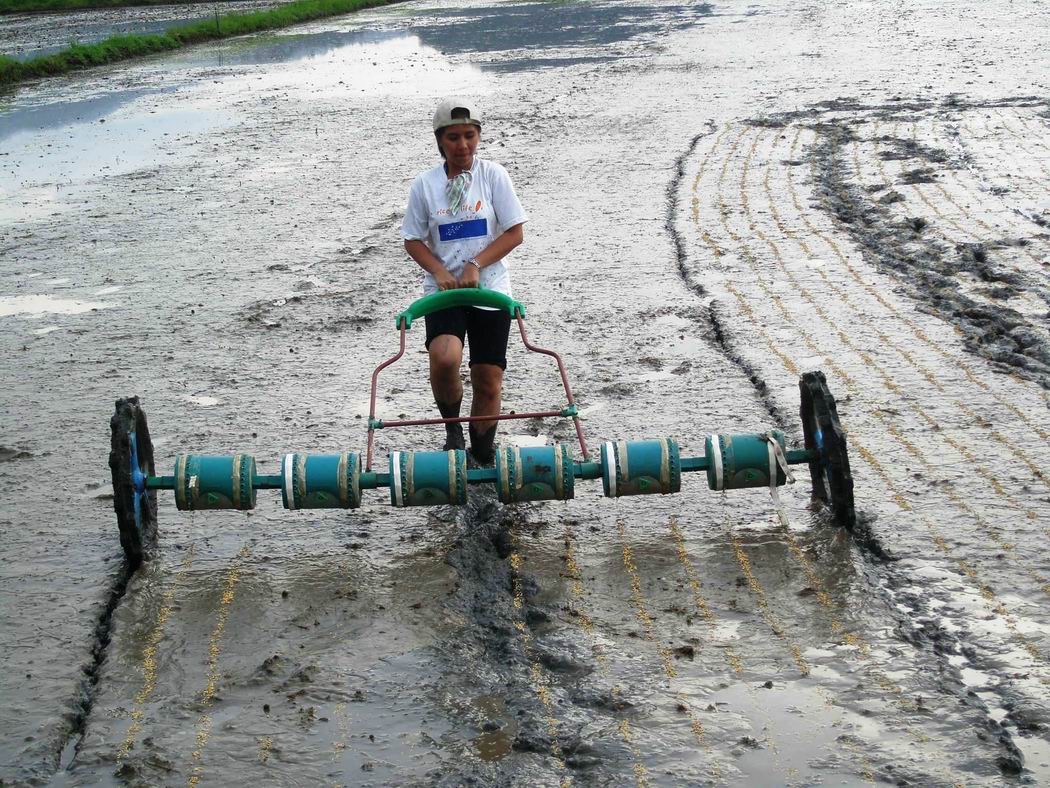
.jpg)
Precision fertilizer application
Most farmers still apply fertilizer manually and agrochemicals with simple tools like knapsack sprayers resulting in uneven distribution that leads to uneven crop, over-supply and run-off and in particular with agro-chemicals to health hazards for the operator. We cooperate with partners in piloting and promoting precision application technologies that increase input use efficiency, minimize the effect on the environment, protect operators and produce a more evenly maturing crop. Examples are a 12V operated spreader for granular fertilizer and improved sprayers.
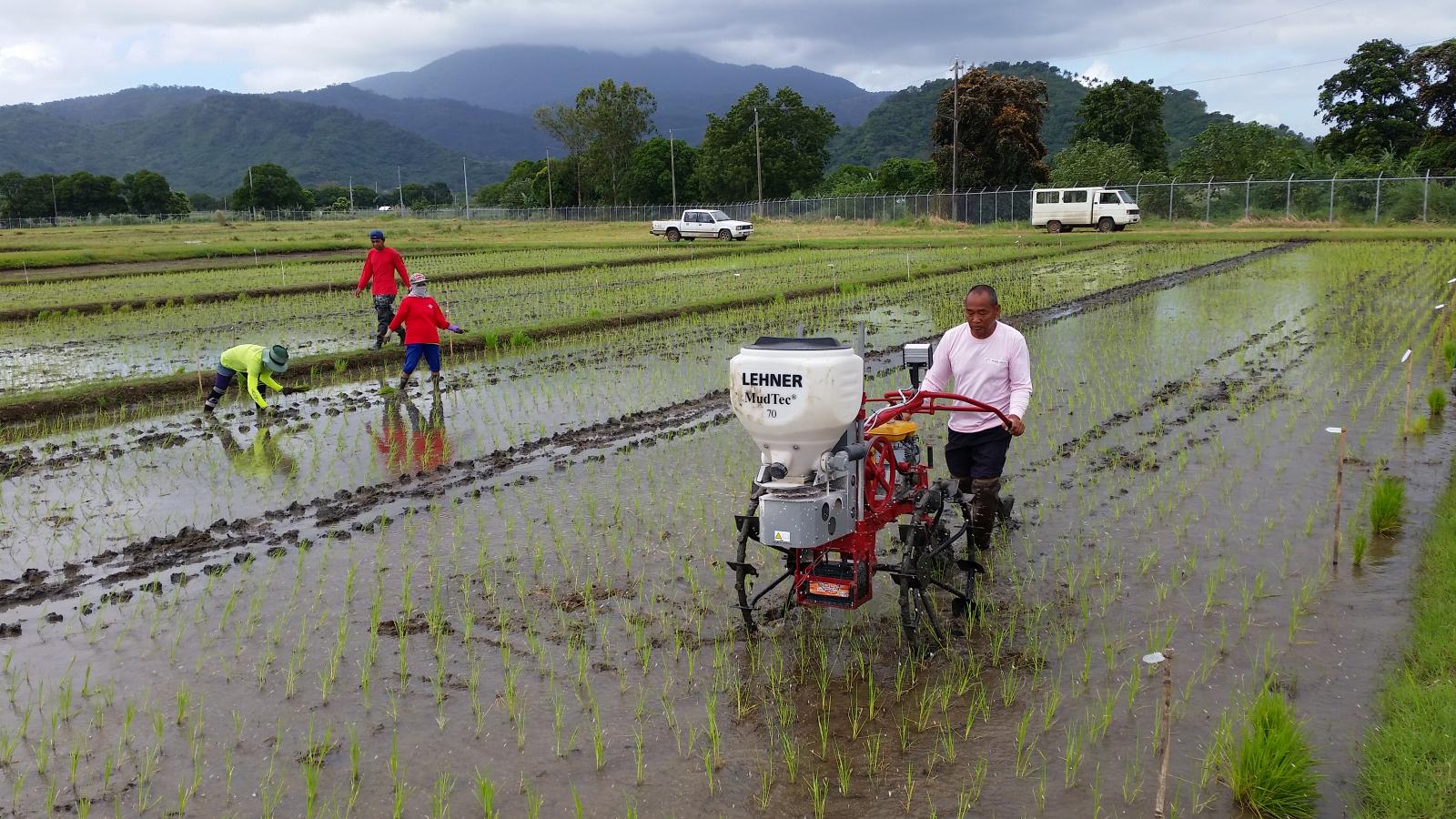
Harvesting
To address labor shortage during peak seasons and the resulting high cost of harvesting operations, as well as quality reduction due to delays in harvesting, IRRI promotes scale appropriate harvesting equipment, which depending on the need can be reapers, threshers or small combine harvesters suitable for small-scale rice fields.

Postharvest management
Postharvest losses in Asia, Latin America and the Caribbean, and Africa that reach up to 30%, are caused by inappropriate postharvest management practices, inefficient technologies, and lack of understanding on the factors that affect grain quality. Poor quality reduces the market price of milled rice by 10–30% thus affecting farmer income.
Improved postharvest technology and management can reduced these losses and add value to farmers’ produce, in particular when it is combined with value chain upgrading and linking farmers to premium markets.
Drying
Drying ensures grain quality and reduces grain moisture content to a safe level for storage. Together with its partners, IRRI has developed clean, safe, and environment-friendly options such as the solar tunnel dryer, flatbed dryer, downdraft rice husk furnace, and the solar bubble dryer.
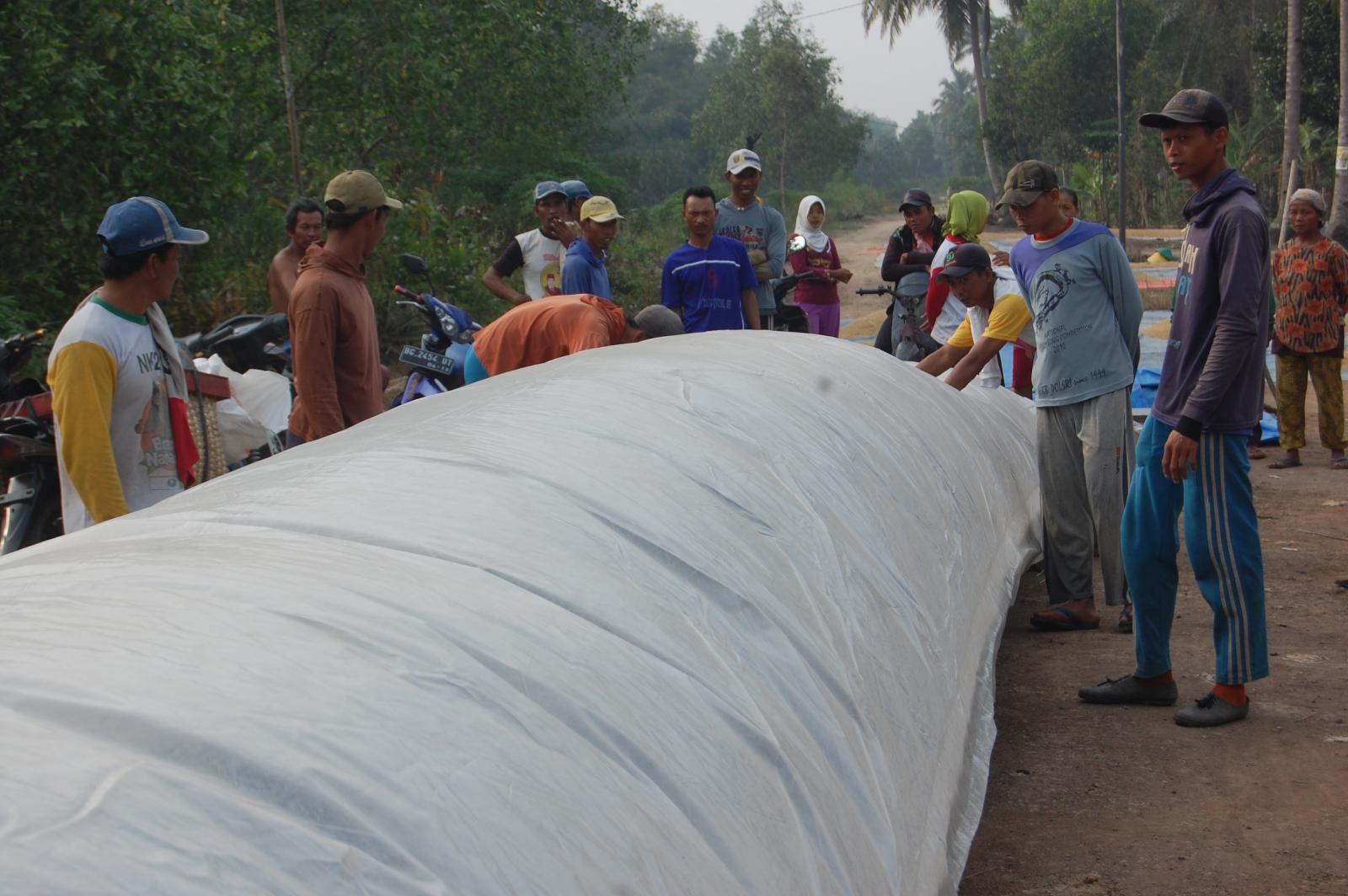
Storage
IRRI with its partners have developed storage options like the IRRI Super Bag and the GrainSafe Pro to help smallholder farmers and seed growers have safe storage conditions. These options maintain seed viability for future use and prevent grain quality loss caused by adverse weather, moisture, rodents, birds, insects and mycotoxins.
.jpg)
New technologies
With the advent of combine harvesting some rice value chains shift from bag handling to bulk handling. This creates favorable conditions for new technology concepts like in-store drying, which has been researched for rice in the tropics in the 1990s but failed because it requires storage in bulk. We are therefore revisiting in store drying by combining hermetic storage with equipment to facilitate drying in the storage container before it gets sealed for storage. One example is the GrainSafe™ Dry with 1t capacity, which cuts investment cost for drying and storage in half.
Supporting mechanization systems and postharvest
Business models for contract service provision
Most machines are too expensive for individual farmers in particular if they only farm a few hectares. IRRI is developing pilot business models for contract service provision to enable small farmers to benefit from machinery or postharvest equipment through service provision. We are also developing ICT tools like EasyHarvest to facilitate machinery usage scheduling.
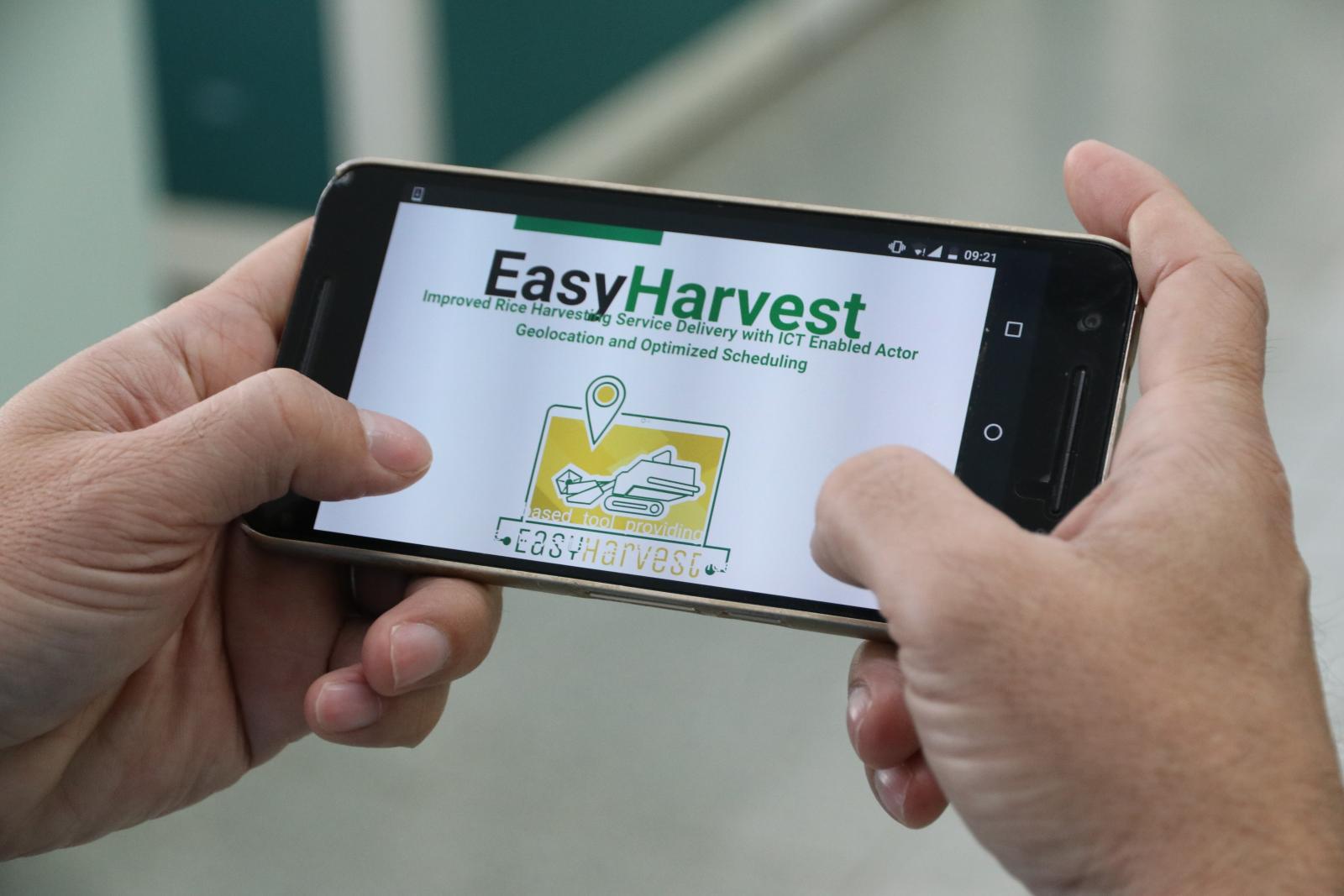
Value chain support services
For purchasing and using machinery for mechanization and postharvest, value chain support services such as financing, and after sales services are needed. In collaboration with suitable partners we pilot such services and provide capacity building e.g. by supporting university curricula for agricultural engineering and skills training for agricultural machinery mechanics.
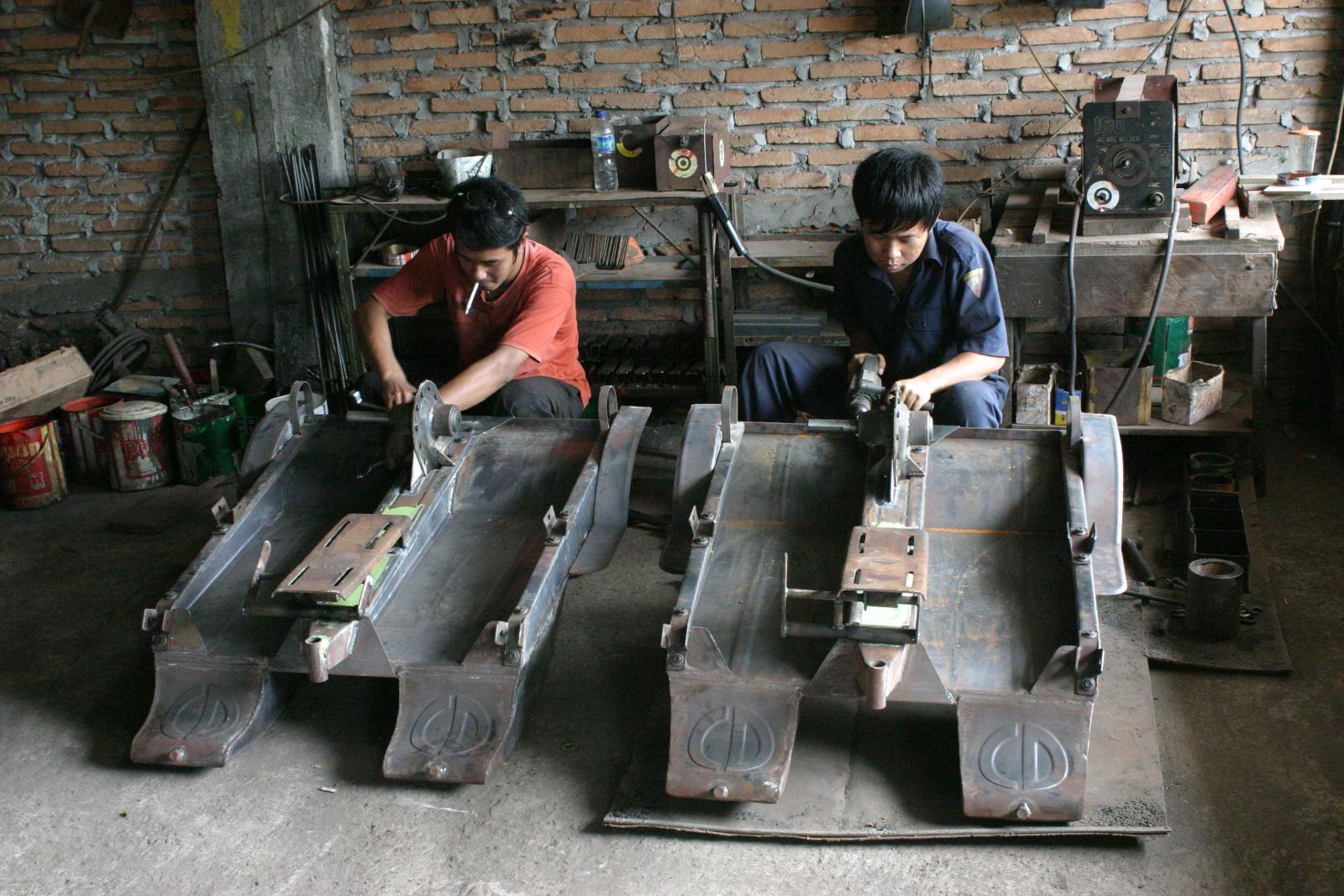
Rice straw management
Rice straw management options introduce practical and viable technology options for optimizing the use of rice straw to open up income opportunities in an environmentally sustainable manner. Aside from incorporating straw in the field to maintain soil quality and boost rice productivity, it can also be used for food, feed for animals, and for bioenergy.
One example of IRRI's intervention, the BMZ funded IRRI rice straw management project generating scientific evidences and practical solutions of sustainable rice straw management, showed that proper rice straw management contributed significantly to reducing rice straw burning by 10‒20% in Vietnam. This also means that 5,000‒10,000 farmers benefited by USD 30‒50 per hectare from selling rice straw. Similar initiatives are being implemented in the Philippines through the RiceStrawPH project, which is funded by the Department of Agriculture's Bureau of Agricultural Research.
Related items
Martin Gummert, posthavest specialist at IRRI, discusses the importance of reducing postharvest losses and adding value to rice.

